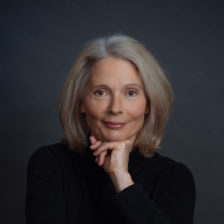 Why did you choose to write this particular story?
Why did you choose to write this particular story?
The idea came to me when I was reading a book by Wally Lamb, called “The Hour I First Believed.” He’d put one of his characters into the very real-life tragedy of the Columbine high school shootings. There was a line in the book that just gutted me; he mentioned that one of the shooters had a brother (this is a fact; I followed up with a lot of my own research). I couldn’t get that out of my head. I’d never thought about the surviving family members of a kid who commits a horrible act of violence. That’s how Henry was born; I just started thinking about the brother who is left behind. Jesse is nothing like those Columbine shooters, of course; his circumstances were very different.
This is a darker novel than your first two. Was that more of a challenge? Did it worry you at all?
I would say it was more of a challenge in the sense that I had to go to a darker place. But I was determined the book would still have a lot of humor, because it’s from Henry’s perspective, and a lot of what he says and observes is (usually inadvertently) funny. I simply could not write a book without humor. But I also knew I was going out on a creative limb; I had no idea if people would respond favorably to that blend of dark and light.
You often have a theme or thread of bullying in your novels. Why?
Good question. I never set out to write about an issue, that’s for sure. I just try to find interesting characters and put them into interesting situations. That said, I do love an underdog, and all of my protagonists fall into that category. They need obstacles and people who make their lives difficult. In Word Nerd, Ambrose is a bit of a bully magnet. In Dear George Clooney, Please Marry My Mom, Violet gets teased by two girls at school. And in this novel, Henry isn’t picked on a lot, but his brother was tormented terribly, and then he sees Farley getting it, too. And of course he chooses to stand up to them, at his own peril.
Speaking of Farley, he’s a wonderful character, as is Alberta. How did you come up with them?
I love Farley and Alberta. I wanted Farley to first come across as a bit of a stereotype in Henry’s eyes; then, over time, he comes to realize what an amazing human being Farley is, and what a great friend. Who wouldn’t want Farley on their side? And Alberta, oh I just love her too. I love writing girls who aren’t girly-girls. I was in a seminar once with a bunch of teens and someone complimented one of the girls on her clothes, and she said, “Thanks. I call it the recycled look.” And that just twigged for me. I knew I wanted to have a female character who dressed like that, and who came with a lot of attitude, but also a lot of vulnerability underneath.
Was it a special challenge to write in journal form?
Yes!!! For many reasons. First of all, some would say journal format has been done to death. So I knew I had my work cut out for me. Second, all my books have been in first person, but a journal was really different. I could only write about things after they’d happened, because that’s how diaries work! I couldn’t write as things were unfolding, which I’ve been able to do in my other novels.
The fictional Global Wrestling Federation plays a big part in the book. Why?
I needed something unique for Farley and Henry to bond over. Also, I loved the metaphorical aspect of babyfaces and heels, and how Henry could relate that to his brother.
Are you a wrestling fan?
No, not in the slightest! But I did a lot of research; watched a lot of WWE shows, and even bought a very expensive coffee table book on all the WWE wrestlers, to look at how they broke down their stats and skills etc. Oh, and I read Bret Hart’s autobiography, Hitman.
What are you currently working on?
I’m just in the rewrite phase of a new novel called We Are All Made of Molecules. It will be published in Spring 2015.
